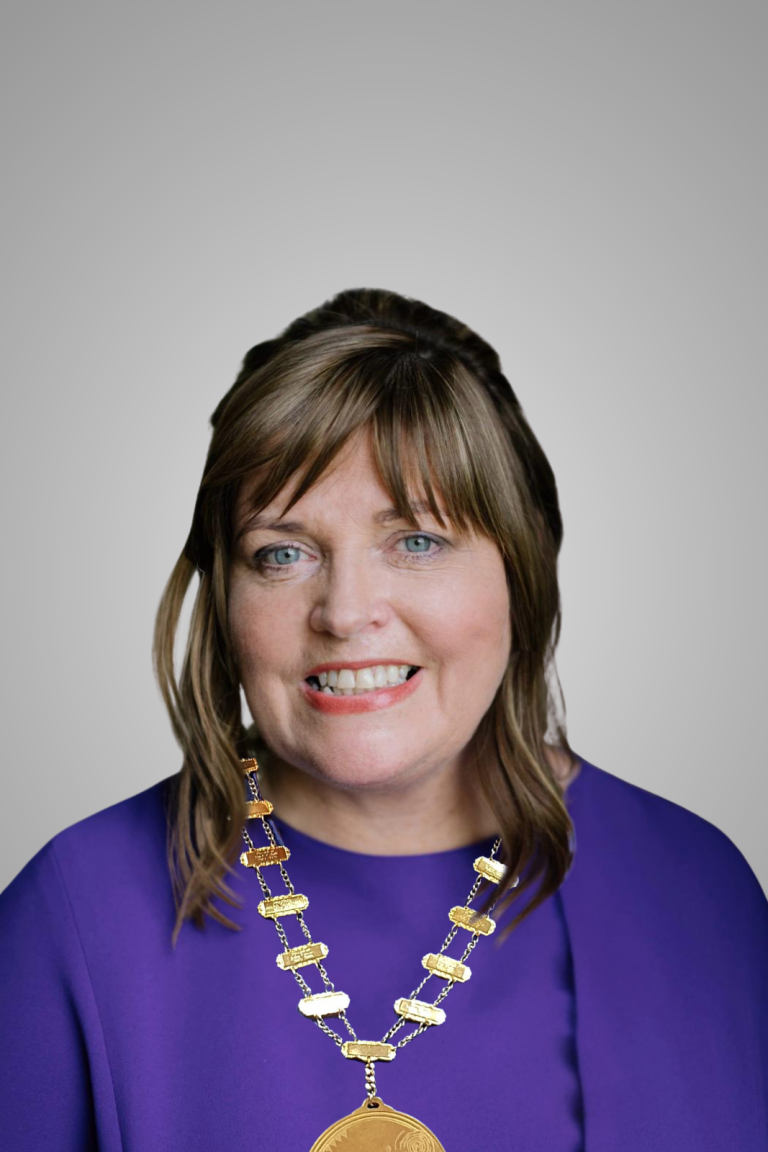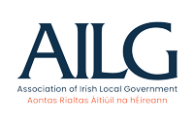About

President's Address
Cllr. Mary Hanna Hourigan is a member of Tipperary County Council, representing Tipperary Cahir Cashel Municipal District and was elected President of the AILG at the Annual General Meeting in July 2025.
Who We Are
The Association of Irish Local Government (AILG) is the primary body proudly representing the democratically elected members and their member local authority. It is a networking, policy development and training resource for the elected members of Ireland’s thirty-one County and City Councils. Through regular interaction with other stakeholders in the local government environment the AILG aims to ensure that the contribution of Ireland’s democratically elected Councillors is appreciated in Government Departments and throughout the full range of public agencies.
Is é Cumann Rialtas Áitiúil na hÉireann (AILG) an príomh-chomhlacht a dheineann ionadaíocht ar Chomhairleoirí atá tofa go daonlathach agus ar an gComhairle áitiúil len’ a mbaineann siad. Tugann sé treoir do bhaill maidir le polasaithe a fhorbairt agus cuireann sé cúrsaí oiliúna ar fáil dóibh. Tá sé mar aidhm ag Cumann Rialtas Áitiúil na hÉireann (AILG), trí idir-bheartaíocht rialta idir na páirtithe leasmhara uile sa Rialtas Áitiúil, a chinntiú go bhfuil meas ag Ranna Rialtais agus ag Ranna Poiblí ar an méid a dheineann Comhairleoirí tofa na tíre.
Welcome New Councillors
On Behalf of AILG may we congratulate all new Councillors on becoming an Elected Member of their local authority.
From the off-shore-islands to the city centres and from the plains of the midlands to the suburbs of the commuter belts a remarkable democratic exercise took place at the last local elections in May 2019, when people of this country chose members of their own communities to represent them on their local authorities for the coming five-year term.
While being elected as a local Councillor is a tremendous honour and privilege, it also brings with it a great responsibility. As a local Councillor, you must provide the vision and leadership that will enable your community to enjoy the quality of life that is aspires to and deserves. Our goal as local Councillors should be to ensure that our community and country is a better place in which to live, work and visit.
Find Your Local Councillor
Double tap on each county to view the Elected Members of each Local Authority
Frequently Asked Questions
The Councillor’s role and responsibilities include representing the electoral area for which they are elected and the local authority as a whole, decision-making, developing and reviewing council policy, regulatory and statutory duties. They also have a key role in community leadership and engagement
The day-to-day management of a local authority is carried out by the executive, i.e. the full-time officials led by the chief executive. The chief executive has a duty to advise and assist the elected council in the exercise of their functions.
Local authorities provide hundreds of services ranging from roads; planning; housing; economic and community development; environment, recreation, and amenity services; libraries and fire services.
There are 31 Local Authorities in Ireland. The elected council is the policy making forum of the local authority.
There are 949 councillors elected to the 31 councils in the country of which 241 are female (25.4%) and 708 are male (74.6%).
A casual vacancy (casual in the sense of “by chance”) is a situation in which a seat in a deliberative assembly becomes vacant during that assembly’s term. Casual vacancies may arise through the death, resignation or disqualification of the sitting member, or for other reasons. The current practice in local government is that casual vacancies are, by agreement, filled by co-option, to maintain the existing political balance of the body concerned.
Standing orders are a set of rules which are adopted by the elected members for the proper control and regulation of proceedings at meetings of the local authority, or the municipal districts.
Reserved functions relate primarily to issues of policy, e.g the adoption of the County Development Plan and the adoption of the annual budget, essential in the determining the overall financial activities of the Council over a broad range of services. This is where the elected members derive their powers. The various reserved functions are set out in Schedule 3 of the Local Government Reform Act, 2014.
